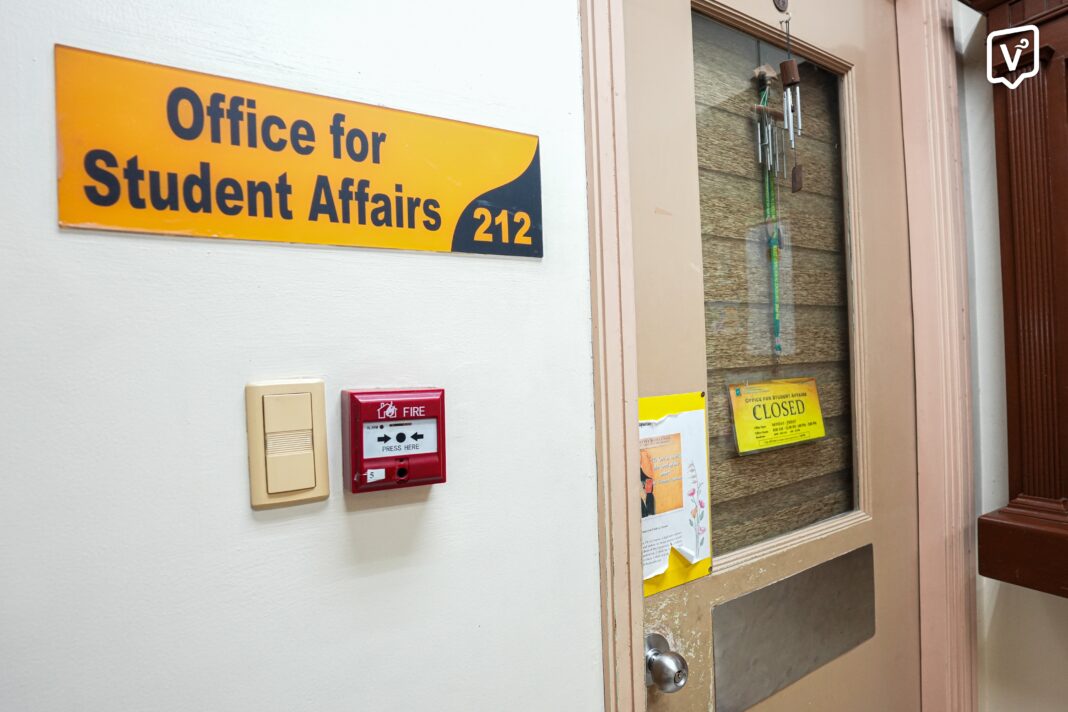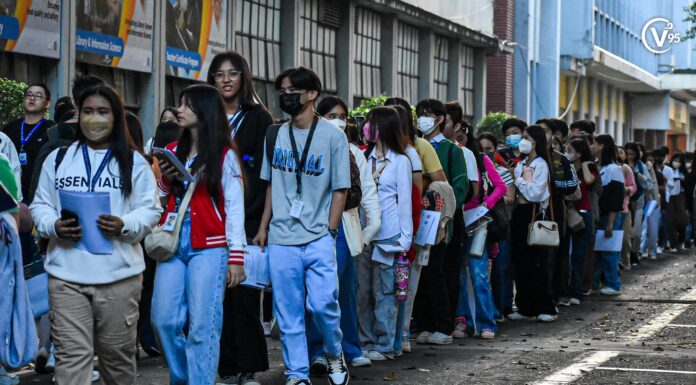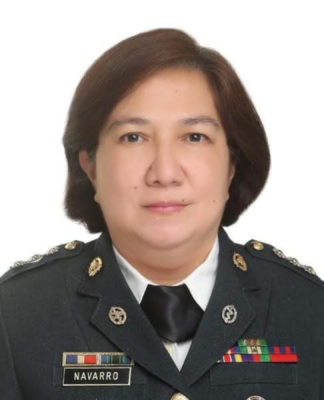THE OFFICE for Student Affairs (OSA) said the University policy banning unrecognized organizations had been “misconstrued,” clarifying that only groups that want to associate with the University or use its name or logo were covered by the prohibition.
In an interview with the Varsitarian, OSA Officer in Charge Jaezamie Ong said the regulations were meant to ensure students’ safety and should not be used as a tool to conduct a “witch-hunt” against activists.
Under the Code of Conduct of the UST Student Handbook, students shall join “only organizations recognized by the University.”
Students are also prohibited, under a separate provision, from using the name “University of Santo Tomas,” its seal, and its official logo in any activity unless sanctioned by the Office of the Secretary General.
“I think it’s time to clarify that,” Ong said. “Ang point kasi don, halimbawa, sumali ka sa choir sa simbahan, bawal ba ‘yon? Hindi…Alam mo kung ano ang mali? Kapag ‘yong pangalan ng org ay naglagay ng ‘UST’ at hindi [naman sila recognized].”
“Ang point [kung] kaya namin sinasabi sa mga estudyante na huwag sumali sa organizations na not recognized by UST pero claiming to be UST, we want you to be careful because some would think na it’s under the supervision of OSA when it is not.”
According to the student handbook, penalties for students caught using the University logo and name without authorization could range from reprimand to suspension, depending on the gravity or frequency of the offense.
In the past, some student activists affiliated with progressive groups bearing UST’s name received show-cause letters from the Student Welfare and Development Committee (SWDC), which acts as the enforcement arm of the OSA in each academic unit.
For instance, former Grade 12 student Allen Ballesteros was summoned by the UST Senior High School (SHS) SWDC in September 2023 for allegedly violating the provisions of the code of conduct in his capacity as the chairperson of the progressive group Anakbayan-UST.
In an interview with the Varsitarian, Ballesteros criticized the policy, saying it had been selectively enforced against student activists, with tougher penalties.
“Hindi siya justifiable. Napakaraming unrecognized organization na humahawak sa pangalan ng UST, bakit hindi sila binibigyan ng show-cause [notice]? Napakaraming merchandise na hindi naman recognized by UST pero binebenta without permission of the office,” he said.
“Napaka-arbitrary lang talaga niya…Nakakapagtaka na pinapagkabit ‘yong dalawang provision na ‘yon,” he added.
Ballesteros claimed he had witnessed first-hand how the SHS administration used these provisions against activists.
However, Ong clarified that the rule against joining unrecognized organizations does not discriminate against activist groups, but applies to all organizations that use the school’s seal and branding without approval.
“We do not need to single out na activist group lang–that is true to all,” she said. “Ang difference lang nito kasi, nagiging mas maingay lang kapag activist group. Doon lang mas napapansin. Pero kapag hindi, [tapos] malaman ng University na mayroon, ganon pa din ‘yon.” with reports from Fernando Pierre Marcel B. Dela Cruz, Hannah Joyce V. Andaya, and Jenna Mariel A. Gonzales















